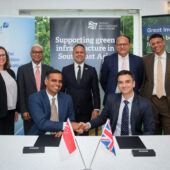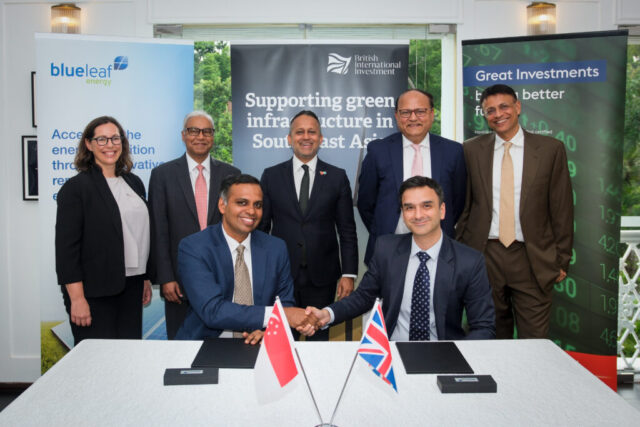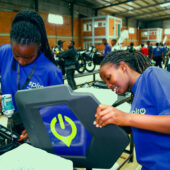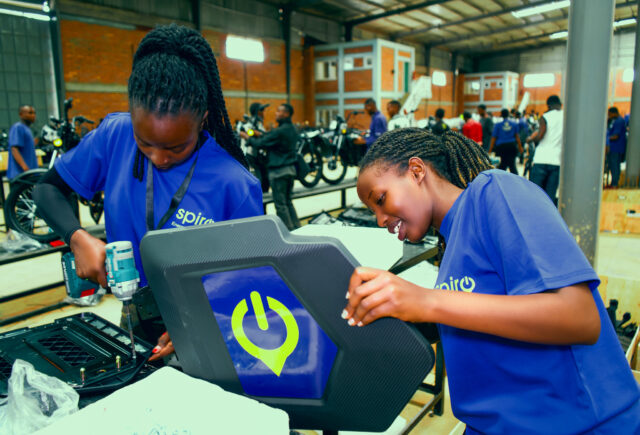At the grand old age of 74, Hermann Schreier (with his wife and a couple of slightly younger Dutch friends), has thrown himself into what he hopes will become a market leader for buses powered by hydrogen fuel cells.
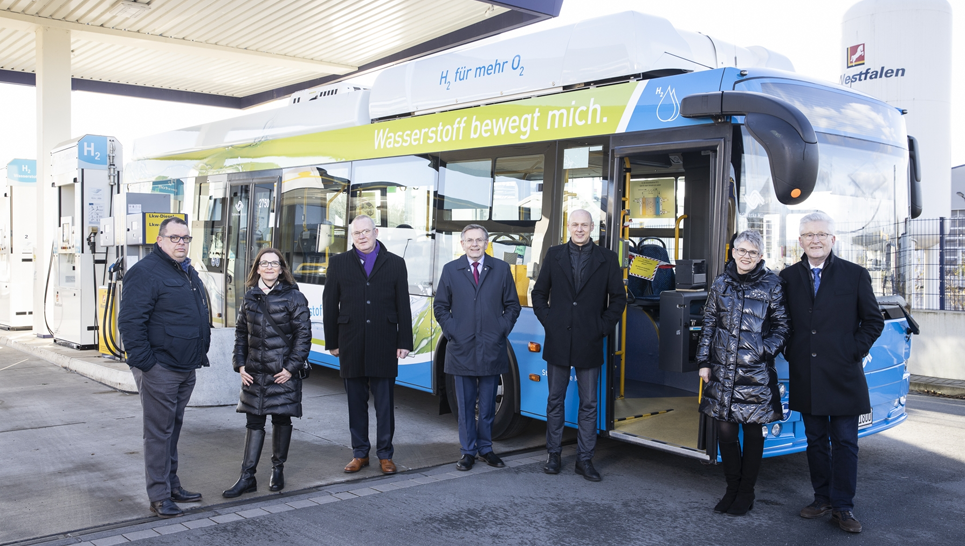
Their timing looks impeccable. Cleaner mobility is at the heart of the ‘Build Back Better’ initiatives that are gaining momentum around Europe and the U.S. as the pandemic enters what ought to be its latter stages.
Governments have never been more eager to support frontier technologies. After a decade full of false starts, it finally looks like hydrogen as a fuel source may be coming of age.
Buses4Future
Schreier is chief executive of Buses4Future, a startup based in Oldenburg in the German state of Lower Saxony. The company’s name is a conscious echo of the ‘Fridays for Future’ movement founded by teenage environmentalist Greta Thunberg. But Schreier combines his idealism with a clear-eyed sense of commercial opportunity.
“When you see a company like Nikola, a much-hyped developer of fuel-cell-powered trucks, valued at $22bn, without any real technology of its own, you think to yourself: ‘Yeah, I can aim for a valuation like that too!’,” Schreier tells Impact Investor.
Legislation is providing a powerful tailwind for Schreier’s ambitions: under the EU’s Clean Vehicles Directive, low-emission powertrains have to be incorporated into at least 45% of buses owned or franchised by the public sector by August 2025. That rises to 65% by 2030.
The EU is also providing some of the financial grease to smooth that transition, through bodies such as The Fuel Cells and Hydrogen Joint Undertaking, a public-private partnership that has backed a variety of pilot projects for the technology across Europe over the last few years.
Breakthrough
Buses4Future’s breakthrough came last year, when it won a startup contest sponsored by Kreditanstalt für Wiederaufbau, persuading Germany’s most august development bank that it could pair German assembly skill with the fuel cells designed by Dutch-based startup Hymove to make H2 buses economically.
That led to a first contract to supply three buses to the university town of Münster in North Rhine-Westphalia and, in February, to an equity injection of some €800,000 from N Bank, a venture capital house set up by the state of Lower Saxony.
A spokesman for N Bank told Impact Investor that it intends to hold its stake for between five and seven years before exiting. The money from N Bank will cover the manufacturing costs for the Münster order but it is clear that more capital will be needed.
Public investment
Public tenders for more buses are coming thick and fast from German municipalities after the Federal Government allotted €10bn to funding hydrogen projects last year as part of its broader plan to revive the German economy after the pandemic.
That ought to go some way to addressing the acute shortage of refuelling and storage infrastructure, as well as the sustainable production of the gas, two things that are still major obstacles to all hydrogen-powered transport.
The company’s strength, Schreier says, is the in-house technology that has already been proven in real-world conditions in the Netherlands, where his partners Theo Hendriks and Jochem Huygens cut their teeth.
By contrast, even Daimler with all its resources has no pure hydrogen bus on the market yet despite more than a decade of trialling. Daimler abandoned its efforts to put hydrogen fuel cells in passenger cars last year, as did Honda.
Both cited cost reasons. However, the economics for buses and trucks are generally thought to be much more favourable. Li-ion batteries don’t offer the energy density needed to carry heavy loads and buses in particular – ploughing their predictable routes – don’t require the same extensive investment in refuelling infrastructure.
Valuations
Schreier says his company is already in talks for another ten buses, and the target for next year’s output is between 50 and 60. By 2024, the target is orders for 100 vehicles, at which point the company’s relatively modest workshop in Hanover will need to be upgraded to a proper assembly line.
The company has already found a third investor, in the shape of Swiss-based RV Energy Invest AG, in a deal arranged by Horst Werner, the owner of an investment boutique in Göttingen.
Details on valuations aren’t public, but a look at already-listed hydrogen companies gives an idea of the extraordinary support from investor sentiment for the sector at present.
Ballard Power Inc., whose fuel cells power most of Buses4Future’s competitors, trades at over 50 times trailing 12-month sales. For Nel ASA, a Norwegian company that focuses on producing and storing hydrogen, the multiple is closer to 55x.
